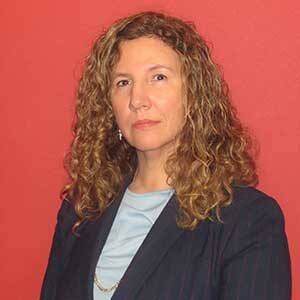Why did you choose to work on open parliament? What are the most important open parliament issues that you tackle through your work?
We have serious trust issues: in 2018 in Latin America, according to the Latinobarómetro, only 20.8% of those surveyed expressed that they have trust (a lot or some trust) in their parliament, and trust is a key issue for the quality of democracy, so we must take all the necessary actions to recover it. Of course there are shortcomings, but there is also a lack of knowledge in society about the role played by the legislative branch and their members. On the other hand, the media focus on negative news about parliament and we are left walking around in a vicious circle. My interest in open parliament is to work on its four pillars (transparency, participation, accountability and integrity and ethics), which are so necessary to strengthen democracy. Also, thanks to the co-creation methodology, we have the opportunity to work with citizens, and of course to a greater degree with organized civil society, and this has served to bring parliamentarians and officials closer to organizations, thus improving the quality of legislation by listening not only to experts, but also to citizen groups that will be affected by public policies. Regarding the oversight role, social control reduces the spaces for corruption, and by listening to citizen expectations during law making, the citizen welfare state is improved and thus institutional trust. In this way, little by little we are breaking the vicious circle.
When you start working on open parliament, one of the problems is achieving the political will and seeing who is invited to the table, and after a few years, more organizations progressively join the process and it is more difficult to work and reach consensus. Another conflict is that when there are very innovative commitments that change the “custom” in a Congress, you have to convince the people involved that the changes are beneficial. But there is no difficulty that has no solution, we can say that problems are temporary challenges.
What are the key lessons that you have learnt through your experience working on open parliament at the national level?
Someone has to take the helm and political will is needed, so I recommend that a cross-sectional group of parliamentarians have the mission of pushing open parliament issues. Legislative powers can create projects and some will believe that it is not necessary to have action plans, however, this is the way to advance in co-created goals and not personal ideas. Furthermore, without action plans, and with day-to-day work, it is more difficult for open parliament initiatives to be implemented. You also need to have a person who is responsible for coordinating and implementing the Plan. I recommend selecting three or five achievable and measurable commitments and seeking support from international organizations because sometimes financial funds or technical support are required for their implementation, for example, the Bicameral Transparency Group has had the support of the IDB, the World Bank, Eurosocial and the UNDP. Working together with parliamentarians, officials, civil society and citizens via the Virtual Congress nurtures the plan because we have more diverse and inclusive ideas. In these times we want to have everything with a single “click”, but you need to have patience and persistence, expectations about open parliament are high, implementation times are longer than in the Executive Branch, and you need to avoid getting frustrated.
What were the greatest achievements of the national open parliament process? What are your expectations regarding the work currently taking place?
One of the most important commitments was the Citizen Participation Regulation, a co-creation process that lasted two years. In the Chamber of Deputies it was approved in March 2020 and it is now close to being approved in the Senate, so the participation will be institutionalized and with clear rules. Another great project is the Virtual Congress, which is a platform for citizen participation in the legislative process. The commitment was only to design the platform, and recently, after two years, the site was inaugurated at the end of June 2020. The platform strengthens and consolidates the participatory process in the National Congress, expanding the contribution of collective intelligence. The Virtual Congress is an effective, sustainable and transformative alternative to deepen democracy, and it is also regulated in the Regulations, making it a tool for institutionalized participation. We now have a roadmap to implement a Parliamentary Budget Office and we are working on the public accounts regulations of Congress. We recently began the commitment to have a civic education program of the legislative branch for students aged 17 and 18 years old and for the visits that go to the National Congress, which in a normal year are about 60,000 people and one of my expectations is that this will be a program that brings youth closer to the legislative branch and motivates them to participate in the country’s political life. We will do the IV Open Parliament Action Plan together with the Executive Power and the Judiciary, and as the process will be completely online, it will be a new form of co-creation, and surely, it will facilitate regional and citizen participation.

